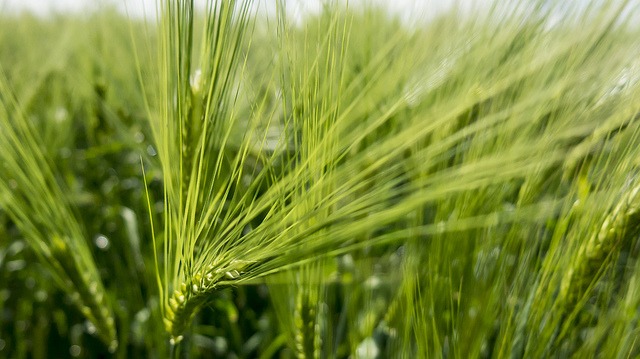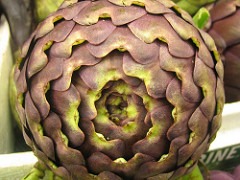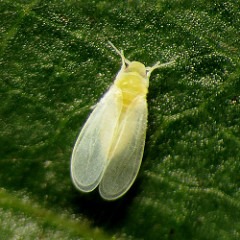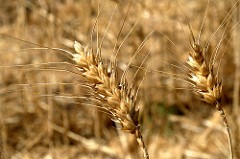
GM/Biotech Crops Report – November 2017
6th November 2017- GM/Biotech Crops Monthly Reports (BELOW) form part of BCPC’s free three-tier Biotech Crops Info service.
- This service also includes a weekly round-up of news from around the globe – see BCPC Newslink GM Crops section.
- Plus – Free access database on over 300 GM/biotech products covering 23 crops in the global market visit BCPC’s GM/Biotech Crops Manual – Register here for free access.
Already registered? Click here
GM/Biotech Crops Monthly Report November 2017
 |
MIT & Harvard lead the way Scientists at MIT and Harvard have developed machines that can be used to correct errors of single bases to effect corrections in the genetic code. They plan to use this technique to cure diseases like cystic fibrosis and it has been said that we can no longer pretend that the techniques are too dangerous to contemplate. More Pic Source: Helen Brekhout |
|---|---|
| Jerusalem artichoke improves salinity tolerance
Cation transporter genes found in Jerusalem artichokes are responsible for its tolerance of salt in the soil and now researchers in China have copied these into the rice genome where they confer improved salinity tolerance and improved grain yield. More Pic Source: Andrew Huff |
 |
 |
Whitefly-resistant lettuce
An RNAi plasmid engineered in lettuce that affects ion transport in whiteflies has achieved 84-98% mortality in whitefly in tests. More Pic Source: Katy Schultz |
| GM Soybean oil reduces obesity
Soybean oil is commonly used as cooking oil in many parts of the world and studies have recently shown that oil engineered to have low linoleic acid content (making it more like olive oil) causes less obesity and insulin resistance than conventional soybean oil but with no effect on diabetes or fatty liver. More Pic Source: MrdOOdman
|
 |
 |
Asthma treatment development
Scientists in China have engineered mice to represent a model of asthma in humans. Then they have used the expressed genes to affect the level of fluid production in response to some antigens. It is early stages work at the moment but it suggests a novel approach to controlling asthma. More Pic Source: Cindy Areola |
| Easier hybrid wheat development
Researchers at the University of Adelaide have discovered a gene in wheat that when turned off stops self-pollination but still permits cross-breeding. Moreover, the gene modification is limited to the grandparent stage and does not proceed to the downstream hybrid lines. More Pic Source: Lamoix |
 |
 |
New method of Septoria control in wheat?
Rothamsted has noted that some strains of Septoria fail to infect wheat leaves due to a mutation on one gene that stops the hyphae from developing to penetrate the wheat cell walls. They are now trying to characterise the protein and will develop a treatment that can be used to block the gene in fungal spores. More Pic Source: MUExtension417 |
| Amaizin’ rice
Scientists in Oxford have taken the first steps in switching rice from C3 photosynthesis to the more efficient C4 photosynthesis by inserting a gene from maize. Once the ancillary genes required have been identified and spliced in it could offer 50% yield increases in the GM rice. More Pic Source: Vipez
|
 |
 |
Rust resistance in wheat
Engineering wheat to achieve HIGS (Host-induced gene silencing) is one way of reducing the virulence of rust spores that fall on wheat leaves. The wheat is engineered to produce the RNAi that switches off essential genes in the growth of the hyphae of the mycelium. Will the rust be able to mutate to find a way around this defence? More Pic Source: Dejan Hudoletnjak
|
THE LATEST ADDITIONS TO THE GM/BIOTECH DATABASE ARE:
- MON87751 x MON87701 x MON87708 x MON89788 – soybean with Lepidopteran insect resistance and tolerance of glyphosate and dicamba approved for food use in Taiwan.
- Bt11 x MIR162 x MON89034 x GA21 – maize with Lepidopteran insect resistance and tolerance of glyphosate and glufosinate approved for food use in Taiwan.
- New transformation event – W8 – potato with late blight resistance, reduced black spot formation and reduced acrylamide potential approved for food, feed and environmental use in Canada and USA.
- Y9 and X17 – potatoes with late blight resistance, reduced black spot formation and reduced acrylamide potential approved for food, feed and environmental use in Canada.
- KK179 – alfalfa with altered lignin content approved for food use in Japan, Singapore and South Korea.
- Bt11 – maize with Lepidopteran insect resistance and tolerance of glufosinate approved for food use in Singapore.
- MIR162 – maize with Lepidopteran insect resistance approved for food use in Singapore, food and feed use in South Africa and for import into China and for environmental use in Columbia.
- MIR604 – maize with Coleopteran insect resistance approved for food use in Singapore.
- GA21 – maize with tolerance of glyphosate approved for food use in Singapore.
- MON88302 – oilseed rape with glyphosate tolerance approved for food use in Singapore.
- MON87769 – soybean with tolerance to glyphosate and modified oil content approved for food use in Singapore.
- IND-00410-5 – soybean with drought stress tolerance approved for food use in America.
FOR INSTANT ACCESS TO GM BIOTECH MANUAL CLICK HERE (Registration required)
Already Registered? Click here to access

